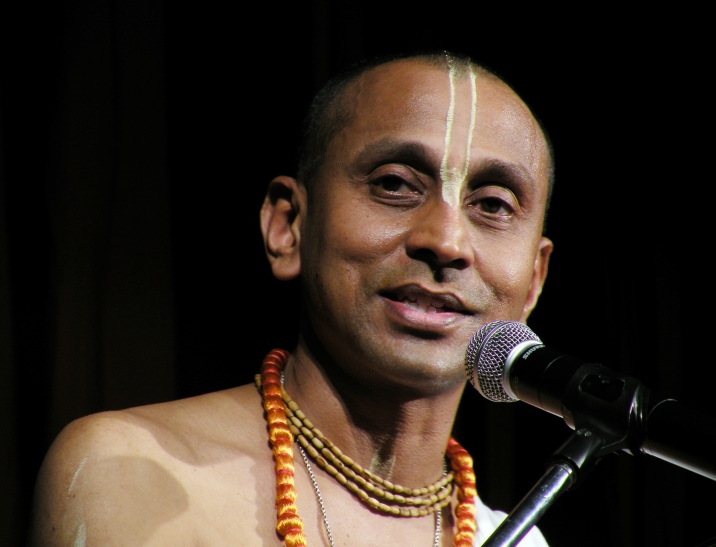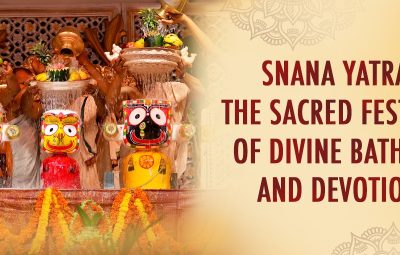
Dear Srila Prabhupada,
Please accept my humble obeisance. All glories to Your Divine Grace.
Recently at the Temple President’s Conference, one of the devotees suggested that we should plan some program or event on July 9th every year, so that we remember and educate younger devotees on the significance of the institutional directive that Srila Prabhupada gave us on this day.
This suggestion was well received and appreciated by other devotees in the conference. One of the devotees in the conference called the July 9th, 1977 directive “the foundational document” of our group. Another said that the directive describes the “diksha vidhana for ISKCON,” while yet another devotee suggested that we should discuss and debate the principles of Gaudiya Vaishnava philosophy of how Srila Prabhupada can continue to be the “current link” and “personal guide” and Acharya of all generations of ISKCON devotees.
Later, I was reflecting on the significance of the written institutional directive on how initiation should be conducted in ISKCON after Srila Prabhupada’s disappearance. He signed the directive on July 9th 1977 and had it sent to all the leaders of ISKCON – GBC members and Temple Presidents. By this Srila Prabhupada ordained and enshrined an important system of initiation practice for ISKCON.
Later, on Oct 18th, 1977 in Vrindavan, a mere twenty eight days before his disappearance from this world, Srila Prabhupada recalled and reminded his senior leaders of ISKCON about the institutional directive (July 9th 1977) he had given.
He asked his senior disciples around him if they had understood this directive correctly: “Is it clear or not?” And Giriraj Maharaj answered in the affirmative, “It’s clear.” Again Srila Prabhupada asked about the document, “You have got the list of the names?” And Tamal Krishna Maharaj answered in the affirmative: “Yes, Srila Prabhupada.”
The more I reflected on this written directive during the next few days; I began to see the immense significance of this document.
Table of Contents
The Absolute Necessity of a Spiritual Master
Srila Prabhupada has taught that one must approach a pure devotee of Krishna and surrender to him. And this is an absolute necessity in spiritual life.
The shastra says one has to surrender to a guru, tad vijnanartham sa gurum evabhigacchet [Mundaka Upanishad 1.2.12]. One must approach guru. This is vidhilin. Not that it is optional; I may accept the guru or not accept guru. No. One must. Gacchet means he must. It is vidhilin. This verb is used where the purport is “one must.” Otherwise, it is not possible. (Srila Prabhupada’s class in Toronto on June 18th, 1976)
The Extraordinary Qualifications Needed to be a Spiritual Master
Srila Prabhupada has also taught the extraordinary qualifications needed to be an Acharya or spiritual master as described in the scriptures:
In Srimad Bhagavatam (11.17.27), the spiritual master is also called Acharya. (SB 6.7.15 purport)
When one has attained the topmost position of maha-bhagavata, he is to be accepted as a guru and worshiped exactly like Hari, the Personality of Godhead. Only such a person is eligible to occupy the post of a guru.
(Chaitanya Charitamrita Madhya 24.330 purport)
Unless one is a resident of Krishna Loka, one cannot be a spiritual master. That is the first proposition. A layman cannot be a spiritual master, and if he becomes so then he will simply create disturbance. (Srila Prabhupada letter to Mukunda June 10th, 1969)
How to Respect and Regard a Bona Fide Spiritual Master?
Srila Prabhupada often quoted three verses on how to respect and regard a bona fide spiritual master, an Acharya:
(1) Achcaryam mam vijaniyan: the Supreme Personality of Godhead says that one should respect the spiritual master, accepting him as the Lord Himself. Navamanyeta karhicit: one should not disrespect the Acharya at any time. Na martya-buddhyasuyeta: one should never think the Acharya an ordinary person. (SB 6.7.15 purport)
(2) yasya prasadad bhagavat-prasado yasyaprasadan na gatih kuto pi “By the mercy of the spiritual master one is benedicted by the mercy of Krishna. Without the grace of the spiritual master, one cannot make any advancement.” A disciple should never be a hypocrite or be unfaithful to his spiritual master. (SB 6.7.15 purport)
(3) This is Vedic version: yasya deve para bhaktih, one who has got unflinching faith in the Supreme Lord. Para bhakti: transcendental devotional service to the Supreme Lord. Yatha deve tatha gurau, as he has got unflinching faith in Krishna, similarly he has got unflinching faith in the spiritual master. Tasyaite kathita hy arthah: all these Vedic literatures and their purport and their meaning will be revealed to him. Tasyaite kathita hy arthah prakashante mahatmanah. So that is the secret, not that erudite scholarship. One must be very much sincere. (Srila Prabhupada class, June 10th, 1969, New Vrindavan)
Do Not Deviate Even Slightly
Any deviation from this standard of respect and regard for the Acharya or the spiritual master is not permitted in the injunctions of the Vedic literatures:
“If someone considers the Supreme Personality—Krishna or Lord Ramachandra—to be an ordinary human being, this does not mean that the Lord becomes an ordinary human being. Similarly, if the family members of the spiritual master, who is the bona fide representative of the Supreme Personality of Godhead, consider the spiritual master an ordinary human being, this does not mean that he becomes an ordinary human being. The spiritual master is as good as the Supreme Personality of Godhead, and therefore one who is very serious about spiritual advancement must regard the spiritual master in this way. Even a slight deviation from this understanding can create disaster in the disciple’s Vedic studies and austerities. (SB 7.15.27 purport)
There are many verses in the Srimad Bhagavatam that warn one of any deviation from the standard understanding:
yasya sakshad bhagavati
jnana-dipa-prade gurau
martyasad-diih srutam tasya
sarvam kunjara-shaucavat
The spiritual master should be considered to be directly the Supreme Lord because he gives transcendental knowledge for enlightenment. Consequently, for one who maintains the material conception that the spiritual master is an ordinary human being, everything is frustrated. His enlightenment and his Vedic studies and knowledge are like the bathing of an elephant. (SB 7.15.26)
Note the words in the Srimad Bhagavatam verse and Srila Prabhupada’s synonyms:
martya-asat-dhih – considers the spiritual master to be like an ordinary human being and maintains such an unfavorable attitude.
Vyasa Puja Offering (2017) by His Grace Chanchalapathi Dasa (Part 2)
Vyasa Puja Offering (2017) by His Grace Chanchalapathi Dasa (Part 3)










